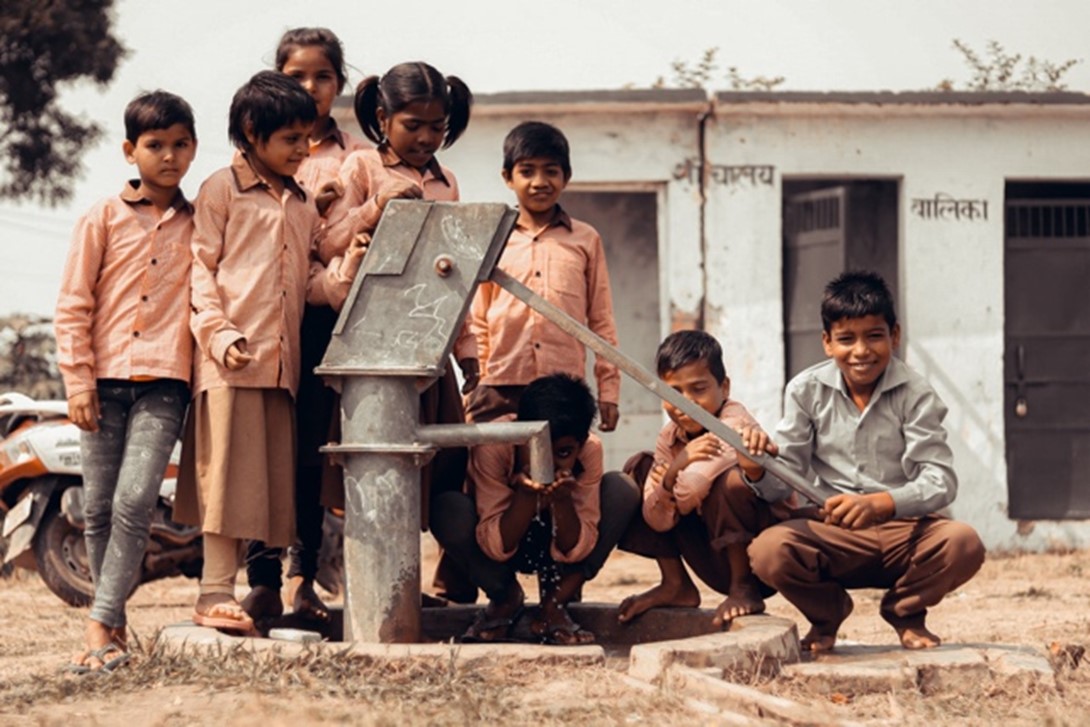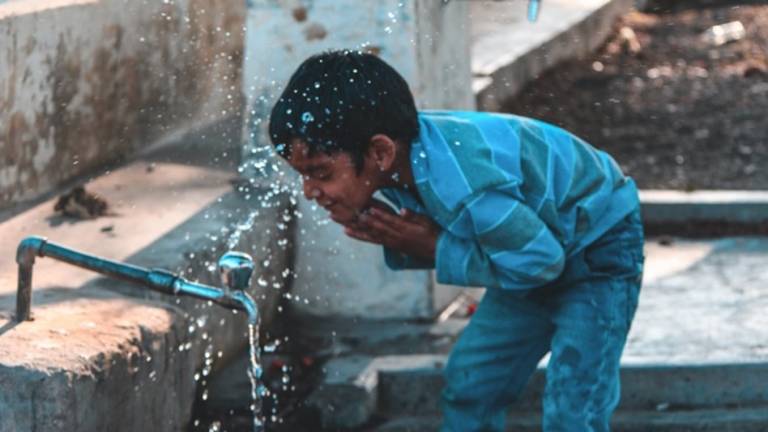Impacts of Contaminated Water on Children (ICWC)
The 'Exploring the Impacts of water contaminated by emerging pollutants on vulnerable children’ project is a joint interdisciplinary project led by a team working across UCL.

15 November 2022
The 'Exploring the Impacts of water contaminated by emerging pollutants on vulnerable children’ project (ICWC) team consists of an interdisciplinary project team of academics from UCL Health, Engineering and International Development Departments - Civil, Environmental and Geomatic Engineering, Great Ormond Street Institute of Child Health and the Engineering for International Development (EFID) Centre - and Dr. Kaushik Sarkar, an external LMIC academic partner with a track record of 10+ years designing and scaling innovative research and business models to improve healthcare access alongside governments, donors and corporate and third sector partners.
The project team have previously worked together to address the UN Sustainable Development Goals and develop solutions for global health challenges faced by society and are pleased to announce this new collaboration.
Why undertake this research?
The 2030 Agenda for Sustainable Development and the UN Sustainable Development Goals, adopted by all United Nations Member States in 2015, provides a shared blueprint for peace and prosperity for all people and our planet, now and into the future. In particular, the United Nations has prioritised Sustainable Development Goal 3 to address health issues, Goal 6 to address water and sanitation, Goal 10 to reduce inequalities, Goal 11 for issues affecting human settlements and Goal 17 for partnerships, and the team aims to address all 5 within the remit of this project.
Water pollution is responsible for an estimated 1.8 million deaths per year (Landrigan et al., 2019). There is evidence that chemical substances, even in very low quantities, may cause chronic toxicity, endocrine disruption in humans and aquatic wildlife, and the development of bacterial pathogen resistance. Several studies have found that chemicals such as lead, methylmercury, polychlorinated biphenyls, arsenic, toluene, manganese, fluoride, chlorpyrifos, tetrachloroethylene, polybrominated diphenyl ethers etc. in drinking water affect brain development from the prenatal period through childhood, with long-term consequences that affect motor function, learning, and behaviour (Silbergeld, 2016; Grandjean & Landrigan, 2014; Wasserman, 2007; Hamadani et al., 2011; Khan et al., 2011; Choi et al., 2012; Janulewicz et al., 2012; Aschengrau et al., 2009).
Children are most vulnerable because they drink more water each day than adults on a per kg-body weight basis (National Research Council, 1993). There are millions of children in low-to-middle-income countries (LMICs) exposed to chemicals which could impact on their life chances and affect their physical health, development and wellbeing in the long-term (Grandjean & Landrigan, 2014). In addition, those in poverty are most likely to be affected because they live in areas of contamination and they do not have resources to clean the water themselves. The exposure and impacts on child health in LMICs are expected to be particularly severe, considering that 2 billion people still do not have basic sanitation facilities such as toilets or latrines (WHO & UNICEF, 2021). Furthermore, most of the wastewater in LMICs is discharged directly to water sources without adequate treatment (UN Water, 2022). Finally, communities with limited access to water and sanitation services are located in high density urban settings such as slums, which tend to be located in proximity to highly polluting industrial estates (Srivastava & Singh, 1996).
Therefore, there is a need to understand what existing evidence exists to inform public health policy in low-to-middle-income countries and decide future research priorities. It is also important to inform interdisciplinary interventions to fund evidence gaps and prioritise future research studies.

Aims
- To assess the exposure of children from conception to age 5 to chemicals in water;
- To determine the effect of these chemicals on child health;
- To identify areas for future research in this area;
- To produce recommendations to support decision-making;
- To contribute to the achievement of United Nations Sustainable Development Goals: 3 (Health), 6 (Water), 10 (Reduce Inequalities), 11 (Human Settlements) and 17 (Partnerships).
Methodology
We will conduct a scoping review that will follow a systematic approach to map the existing evidence on effects of water chemicals on children in low-to-middle-income countries.
Expected Outputs
- Infographics of findings;
- Video presenting the findings of the review showing how people access water and what the challenges are;
- An open-access academic publication in an international journal;
- Presentation at Engineering, Water Sanitation and Child Health-focused events (e.g. events in honour of World Water Week 2022 from 23 August to 1 September).
- Knowledge exchange with UCL partners in low-to-middle-income countries such as academics, policy-makers, third-sector organisations and the media, particularly in South Asia (e.g. India and Nepal)
- Co-design workshop with stakeholders and experts in the fields of Engineering, Water Sanitation and Child Health.
Anticipated Impact
- Through this review we will be able to build on existing interdisciplinary partnerships and strengthen new ones with a direct focus on areas relevant to the UCL SDG strategy by evidencing interdisciplinary links to improve child health outcomes.
- This review will provide evidence to inform and support a development of a low-to-middle-income country community-based public health grant proposal using a case study approach. This will include the collection of clinical data in case study areas, water samples for chemical analyses, transect walks and social mapping to explore the pathways of water consumption by the children.
Team Members
- Dr Luiza Campos, Principal Investigator & Associate Professor of Environmental Engineering at UCL Department of Civil, Environmental and Geomatic Engineering
- Professor Monica Lakhanpaul, Principal Investigator & Professor of Integrated Community Child Health at the Department of Population, Policy & Practice & UCL GOS Institute of Child Health
- Dr Priti Parikh, Principal Investigator & Associate Professor at the UCL Engineering for International Development (EFID) Centre
- Dr Kaushik Sarkar, India Co-Director at Aceso Global Health Consultants
- Carol Vigurs, Senior Research Fellow at the UCL Institute of Social Research
- Eniola Shittu, Research Assistant
- Marta Koch, Research Assistant
 Close
Close

